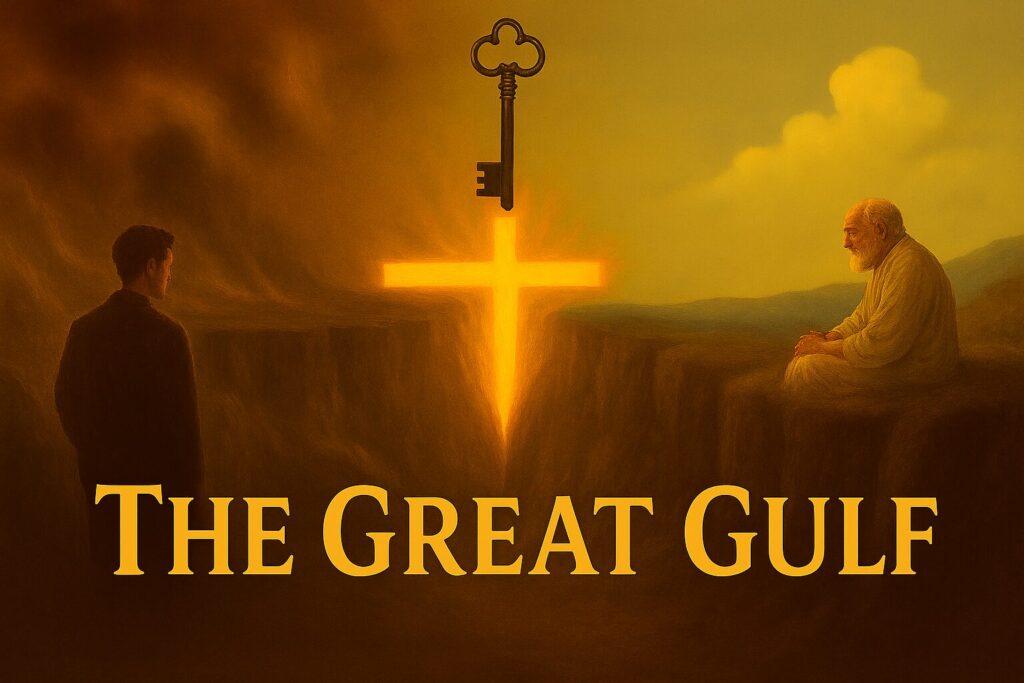🕒 3 min read · 📝 582 words

Revelation is a spiritual mirror.
Through layered symbols and repeated cycles, it tells the same story again and again: the testing of faith, the call to repentance, and the final separation between those who endure and those who fall away.
📖 The Bible Speaks to Believers
Jesus said, “To you it has been given to know the mysteries of the kingdom…” (Matt 13:11). The Bible is written for those in covenant with God. Its mysteries are concealed to the world but revealed to those who seek with faith (Prov 25:2). Revelation, like Jesus’ parables, is a divine code—meant to be searched out by the faithful.
🔁 Revelation’s Cycles: One Story, Many Angles
Revelation retells the same spiritual drama through multiple symbolic cycles:
Rm 1:18
| Cycle | Chapters | Spiritual Focus |
|---|---|---|
| Seals | 6–8 | Jesus controls everything |
| Trumpets | 8–11 | Warnings and partial judgments to provoke repentance |
| Signs & Beasts | 12–14 | Cosmic conflict and spiritual deception |
| Bowls/Vials | 15–16 | Final judgments on hardened unbelief |
| The Fall of willfully sinful believers called “Babylon” | 17–18 | Exposure and collapse of false religion |
| Millenium = Obedient Christian Life | 19–20 | Separation of faithful sheep and unfaithful goats or sleepers, 1 Thess 4:13. |
| New Creation | 21–22 | Reward of the faithful; exclusion of the unrepentant |
Each cycle ends with a division: those who endure inherit the kingdom; those who fall away perish, Gen 3:22-24.
🏴 Babylon as the Backslidden Believer
Babylon is not just a city or system—it is the symbol of the backslidden believer:
- Once adorned in priestly imagery (Rev 17:4), she now holds a cup of abominations.
- She commits spiritual adultery, echoing Israel’s unfaithfulness in the prophets.
- At the 7th trumpet and third Woe, the backslidden believers’ fall is final: “The voice of bridegroom and bride shall be heard in you no more…” (Rev 18:23).
- God calls His Obedient people to come away from her (Rev 18:4).
⚖️ The Third Woe and the End of Opportunity
The seventh trumpet (Rev 11:15) is the third woe—not just a judgment, but the end of the mystery of God (Rev 10:7). This marks the closing of the door:
- No more delay, there are two possible ends for believers.
- The End or Goal of obedient faith is salvation, 1 Peter 1:9.
- The period of attempted correction called “the first woe”, as seen in Job, does not result in spiritual death, the second intensified period of woe can.
- The result of unbelief during the third woe or 7th trumpet results in unbelief, Rev 10:7.
- No more repentance, they are assigned a place with the unbelievers, Luke 12:46.
- The faithful are sealed; the unrepentant are hardened (Rom 1:24–28).
🔥 The Day of the Lord: Jesus Uses All Tools
Joel 1:15 calls it “a day of destruction from the Almighty.” But this destruction is discipline:
- Jesus rules over all—obedient and disobedient alike.
- Even satanic tools (Rev 9) are under His authority, used to move errant believers toward repentance.
- This is vengeance for His temple (Ezekiel 39:7) and refinement (Heb 12:6–11) for the repentant.
🌱 The Parables: Jesus’ Summary of Revelation
Jesus’ parables are compressed versions of Revelation’s message:
- The Sower: Only the prepared heart bears fruit.
- The Wheat and Tares: Judgment separates the true from the developing and the false.
- The Virgins: Some are ready, some are shut out until they are ready, Matt 25:9. Thus the on going woes of Revelation.
- The Dragnet: The net is drawn in. The kingom is entered or discipline is called for Matt 25:41.
🧭 The Telos of Faith
- The telos (end) of the faithful is salvation (1 Pet 1:9).
- The telos of the hardened is destruction (Rom 6:21–22).
- Revelation is not about “them”—it is about us. It is a call to endure, to overcome, and to remain faithful until the end.